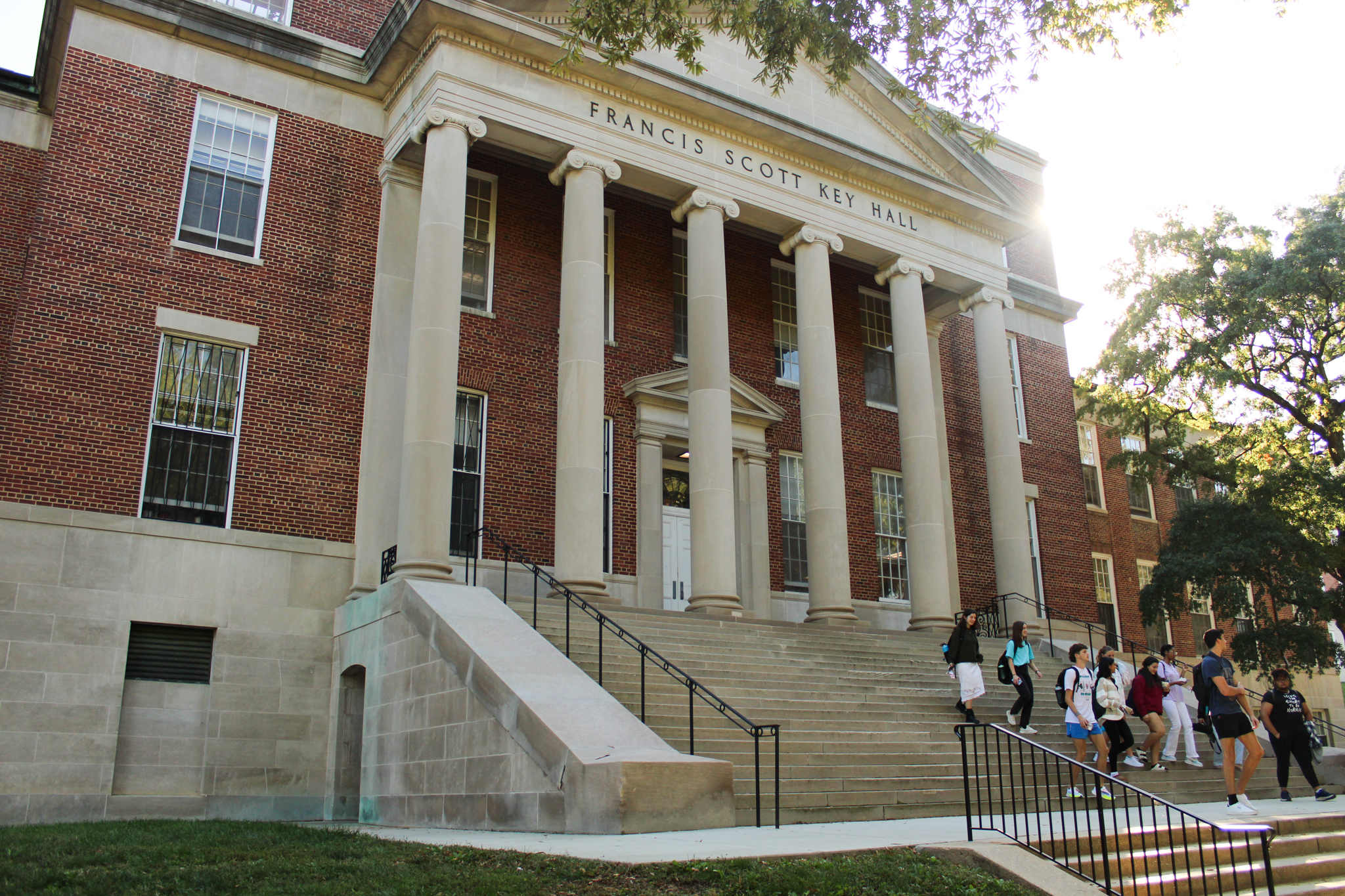Eight undergraduate majors at the University of Maryland saw significant enrollment decreases across the last decade, according to an analysis by The Diamondback.
In an analysis of degree programs that had more than 100 students enrolled in 2012, The Diamondback found eight have seen enrollment decrease by more than 50 percent. Four undergraduate majors whose enrollment has halved in the last 10 years reside in this university’s arts and humanities college.
Anthropology majors in the bachelor of arts degree program saw the largest decline in enrollment at this university since 2012, with a nearly 78 percent decrease in the number of registered majors.
Barnet Pavão-Zuckerman, the anthropology department’s chair, said the introduction of bachelor of science programs has impacted enrollment for the anthropology department’s bachelor of arts degree.
In fall 2017, the anthropology department introduced a bachelor of science anthropology degree and an additional degree in culture and environment as part of the environmental science and policy department, she added.
While the bachelor of arts anthropology program studies theoretical archaeology and anthropology, the two bachelors of science degrees focus more on archaeology’s methods and science, Pavão-Zuckerman said. A lot of students now opt for the bachelor of science degrees, she added.
“Some of the decline that you’re seeing in the B.A. is actually those other majors coming online,” she said. “The B.A. alone doesn’t really tell you the story.”
Pavão-Zuckerman attributed the decrease in the number of anthropology majors to internal shuffling within the department itself, citing the department’s 12 percent increase in enrollment from fall 2022 to fall 2023.
Senior anthropology major Faith Antonetti, who is on the major’s bachelor of arts track, said some students may be deterred from entering the field because they do not see opportunities for high-paying jobs. But she added that an anthropology degree is more versatile than many students believe.
“It's such a wide field. It really can be anything,” Antonetti said. “It's a way of thinking because it teaches you to look at other cultures and different ideas and perspectives.”
[Finance, management among 10 UMD majors with significant enrollment increases since 2012]
Several faculty members in this university’s arts and humanities and behavioral and social science colleges said enrollment declines reflect a national trend in their fields.
The number of graduates in humanities fields, such as English, history and non-English languages, decreased by 27 percent nationwide from 2012 to 2018, according to the American Academy of Arts and Sciences.
Scott Trudell, the English language and literature department’s director of undergraduate studies, said students often have a misconception that majoring in English will make it difficult to land a job.
But English majors have a versatile skill set built on their ability to communicate effectively, Trudell said.
Trudell cited the increase in options for students to major in as another factor for the decline.
Majors that offer similar curriculum have also contributed to the enrollment decline in the economics bachelor of arts program, according to department chair Andrew Sweeting.
The public policy major includes microeconomics courses and topics that would be covered in a public finance economics class, Sweeting said. The information studies and business schools also teach economics-related skills, he added.
Sophomore economics major Keshav Mittu said he opted for the bachelor of science track to focus on the mathematical side of economics, which better aligns with his interests.
“I’ve always liked math, so I thought the B.S. track made more sense,” Mittu said.
Several departments at this university study both the number of registered majors and how many students enroll in the department’s classes. Those figures often include students from different majors.
Sweeting said the decline in enrollment for introductory economics classes is smaller than the decline in the number of majors because students on different degree paths who are enrolled.
[UMD to decrease computer science transfer admissions by 90 percent in fall 2024]
Ahmet Karamustafa, the history department’s chair, said total class enrollment provides a better picture of how a department contributes to the university.
The history department’s class enrollment rate of decline is much lower than the major’s rate of decline, according to Karamustafa. Karamustafa noted that this “cheers [him] up” as students are exposed to history courses regardless of whether they are in the major.
Since 2012, the Spanish language, literatures and culture majors have seen a nearly 60 percent enrollment decline as of the fall 2022 semester, according to The Diamondback’s analysis.
Elisa Gironzetti, an associate professor of Spanish linguistics, said enrollment in non-English languages has declined due to the “perceived” value of a second language degree in the eyes of students and parents. Some students may be discouraged from majoring in Spanish because it lacks the clear-cut connection to a specific job, Gironzetti said.
“If someone enrolls in engineering, then they’ll be an engineer. It’s a very straight path,” Gironzetti said. “If you are doing a Spanish major, you don't have the clear connection with one specific profession. Because the reality is you can apply that knowledge to tons of different professional areas.”
Karamustafa hopes to see students and faculty properly value the role of humanities in higher education in the future.
“You cannot have a great university without an extremely solid and great humanities division,” Karamustafa said. “As long as that’s the message that we are hearing and that we are also sharing with others, we’ll be fine.”



